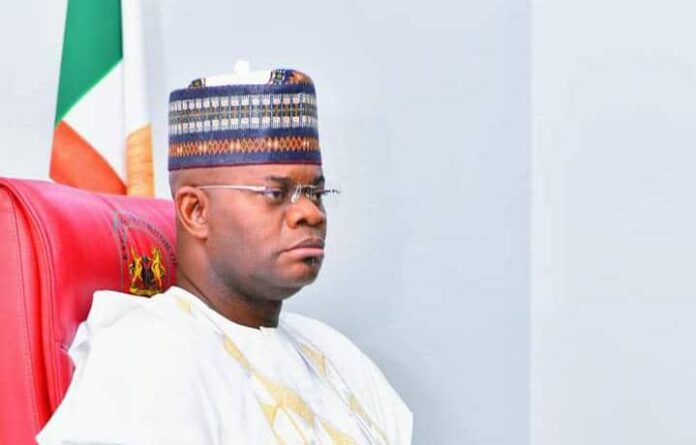The ongoing N80.2 billion fraud case against former Kogi State Governor Yahaya Bello took an unexpected turn in the Federal High Court, Abuja. Adeola Adedipe (SAN), one of Bello’s lawyers, requested to withdraw from the case, adding another layer of complexity to the high-profile corruption trial.

Bello, who has been absent from four previous court proceedings, faces charges of money laundering and misappropriation of funds alongside three associates. The Economic and Financial Crimes Commission (EFCC) alleges that Bello and his co-accused conspired to convert over N80 billion obtained through criminal breach of trust.
During the latest hearing, Adedipe informed the court that Bello’s lead counsel had written to the Chief Judge requesting a transfer of the case to the Federal High Court in Lokoja. This move, coupled with Bello’s continued absence, prompted EFCC counsel Kemi Pinero (SAN) to accuse the defense of employing delaying tactics.
The courtroom exchange grew heated as Pinero suggested contempt proceedings against Adedipe for failing to produce Bello as previously promised. Adedipe, taking offense at being called a “trickster,” responded by applying to withdraw from the case entirely.
Justice Emeka Nwite has adjourned the case until July 17, 2024, to rule on the lawyers’ submissions and potentially proceed with Bello’s arraignment. The judge also ordered both of Bello’s representing Senior Advocates to be present for the ruling.
This case highlights the challenges in prosecuting high-profile corruption cases in Nigeria. The EFCC has previously declared Bello wanted, citing difficulties in locating and arresting him. The commission has also accused the Kogi state government of using its “immunity” to shield the former governor.
The situation raises questions about the effectiveness of anti-corruption efforts in Nigeria, particularly when dealing with powerful political figures. Mohammed Ndarani Mohammed (SAN), commenting on the broader issue, suggested that the retention of the immunity clause in the Nigerian Constitution for certain officials demonstrates a lack of genuine commitment to fighting corruption.
Mohammed argued that Section 308 of the Constitution, which provides immunity to sitting governors and their deputies, should be removed to enable more effective prosecution of corruption cases. He contends that this legal protection allows some officials to engage in corrupt practices without immediate consequences.
The Bello case is part of a larger investigation that has already seen the trial of his nephew, Ali Bello, and others for related fraud charges. The outcome of this case could have significant implications for anti-corruption efforts in Nigeria and may influence public perception of the justice system’s ability to hold powerful individuals accountable.
As the legal drama unfolds, many Nigerians are watching closely, hoping for a resolution that upholds the principles of justice and accountability. The case serves as a litmus test for the country’s anti-corruption institutions and the broader fight against financial misconduct in public office.




